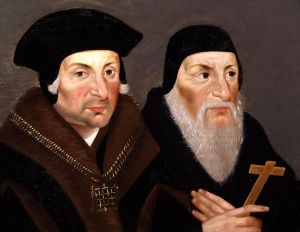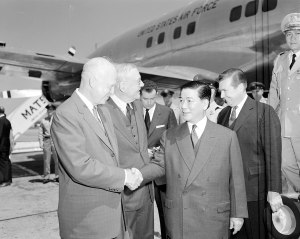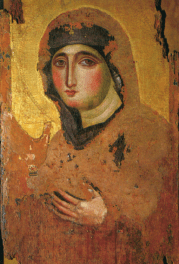We support our Publishers and Content Creators. You can view this story on their website by CLICKING HERE.
The issue of women’s ordination is one comparatively minor aspect of the much larger issue of our times: the destruction and distortion of human sexuality and ultimately the destruction and distortion of the human race itself.
The ordination of women in the Church of England was the catalyst for my conversion to the Catholic Church in the early 1990s. It was not the issue of women’s ordination itself which caused me to leave the Church of England, but the question of women’s ordination raised the greater question of authority in the church. “Where does one turn for the answer when sincere and prayerful Christians disagree on crucial matters?”
This is the Protestant problem: Where does one turn to resolve serious disagreements in the church? Scripture alone won’t do because both sides will have their own interpretation of the Scripture. The Protestant answer must always be either, “This is not such an important issue that it should divide us. We must stay together for the sake of church unity”; or, “Only one of us can be right so, we must part ways.” St John Henry Newman summed up the dilemma (I am paraphrasing): “Dogmatic Christianity must have an infallible authority else it falls into either the sectarian or the latitudinarian error. The sectarian sacrifices unity of form for unity of doctrine while the latitudinarian sacrifices unity of doctrine for unity of form.” I came to realize that the question of women’s ordination was indeed an important issue, and in the intervening years have come to see it as a defining issue not only for church polity and practice, but also for the integrity of the Christian gospel and indeed, the integrity of the whole human family.
Those who were arguing in favor of women’s ordination in the Church of England thirty years ago had three basic arguments: sentimental, political, and practical. The sentimental was, “Jenny is such a kind and prayerful person. She’s a loving mum and wife. She really feels called to priesthood. It is very unkind and unChristian to deny her wish to be a priest.” The political argument was one of social justice. “Women are repressed by a male dominated society. It’s time for justice and equal rights!” The practical was perhaps the most trenchant and difficult to answer: “We have women doctors and lawyers and women prime ministers. Women can do the job just as well as men. Why stop them? What’s the point?”
While these arguments are still put forward by the activists pushing for female ordination in the Catholic Church, I have noticed a new strain of argument which, thirty years ago, was implicit in the movement, but which remained unspoken. It is an extension and flip of the practical argument—asserting than women can do the job just as well as a man. This extended practical argument is stated as, “There’s really no difference between men and women, so why retain antiquated gender roles?”
The observation that “women and men can both do the job” has become “because women and men can both do the job there is no difference between women and men.”
This obliteration of the biological realities has been translated into theology-speak by Catholic feminist Phyllis Zagano. In her book pushing for the ordination of women she argues for a “single nature anthropology.” The important thing about Jesus Christ, she maintains, is that he was a human being—his being a Jewish man is, at best irrelevant. Thus misinterpreting St Paul’s letter to the Galatians, she proposes that ontologically “in Christ there is no male or female.”
Modernist theologians always trim their sails according to the wind, and this opinion echoes the current “woke” ideologies that obliterate gender identities in favor of a neutered humanity. When those who argue for women’s ordination assert that there are no differences between men and women, their opinion harmonizes neatly with the zeitgeist.
An online search will state that there are seventy-two genders and an AI search tells us that there are “an infinite number of genders.” That some folks now assert quite innocently that “there is no difference between men and women” and that a Catholic theologian argues for “a single nature anthropology” shows how much the “woke” propaganda has infiltrated every level of our society.
Why is there such confusion over this basic question of human identity? It is the fruit of sixty years of the sexual revolution. We usually think of the sexual revolution as simply being a hedonistic revolt against traditional sexual morality, but we can now understand it as a revolt against human sexuality itself and, by extension, human identity.
The sexual revolution not only dispensed with traditional sexual morality. Through feminism and homosexualism it undermined both masculinity and femininity, and these forces, together with the new medical technologies of artificial contraception and easy abortion, brought about a profoundly new understanding not only of sexual behavior, but also of sexual identity and ultimately human identity itself.
To be a human being is to be male or female. Try as we might to re-imagine ourselves as neuter or one of seventy-two different genders, we cannot escape the fundamental gender binary. The different genders are not a new construct. They are all either a distortion or destruction of the original and essential male and female identities. You can no more invent a new gender than you can invent a new color.
The issue of women’s ordination, therefore, is one comparatively minor aspect of the much larger issue of our times: the destruction and distortion of human sexuality and ultimately the destruction and distortion of the human race itself.
What is the answer to this frightful future? Angry rants by conservative preachers will not suffice. Neither will reasoned arguments by philosophers or theologians. The answer to any distortion of reality is the positive action taken by sane, healthy, honest people.
Young men and women need to marry, stay married, have lots of children and show in their words and works the vibrant attractiveness of all that is simple, beautiful, good, and true. Then their pro-life and pro-family choice needs to be supported by their extended family, community, church, and society.
The Imaginative Conservative applies the principle of appreciation to the discussion of culture and politics—we approach dialogue with magnanimity rather than with mere civility. Will you help us remain a refreshing oasis in the increasingly contentious arena of modern discourse? Please consider donating now.
The featured image, uploaded by Sebastián Picker, is “Divino Caos” (2019), painting by Sebastián Picker. This file is licensed under the Creative Commons Attribution-Share Alike 4.0 International license, courtesy of Wikimedia Commons.
Share This Story, Choose Your Platform!
Go to Top

 Conservative
Conservative  Search
Search Trending
Trending Current News
Current News 







